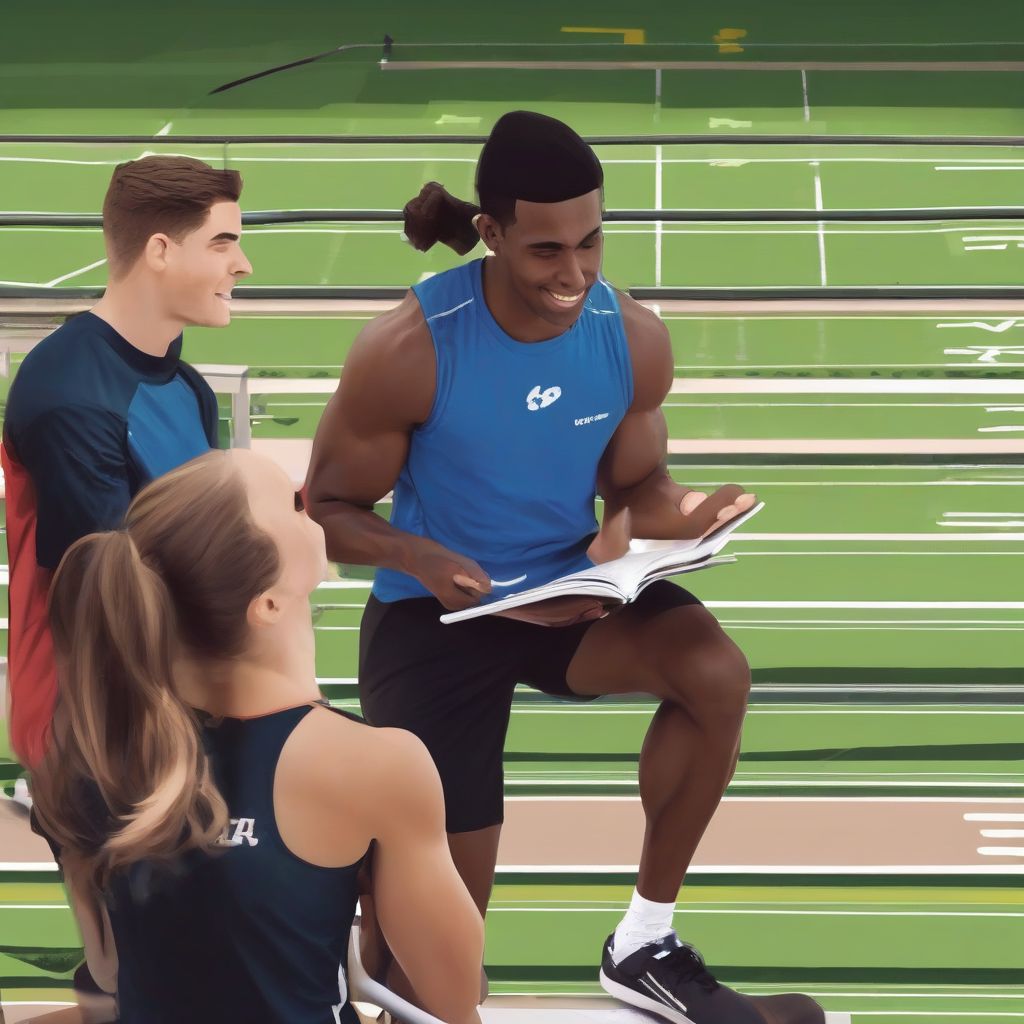“I want to take my game to the next level!” As a sports nutritionist and meal prep coach, I hear this phrase a lot from athletes. It’s music to my ears! Who doesn’t dream of unleashing their full athletic potential? The key lies in a well-designed performance enhancement program tailored to your unique needs.
Think of it as a blueprint for success, guiding you towards peak physical and mental condition. Whether you’re aiming for that extra burst of speed, unwavering endurance, or laser-sharp focus, this comprehensive guide will equip you with the knowledge to create a program that delivers results. Let’s dive in!
Understanding the Athlete’s Needs
Before diving into meal plans and training schedules, we need to lay a solid foundation.
1. Goal Setting and Assessment
Every athlete is different, with unique strengths, weaknesses, and aspirations.
- Clearly Define Goals: What are your specific, measurable, achievable, realistic, and time-bound (SMART) goals? Are you striving for a new personal best, making the varsity team, or competing at a national level?
- Conduct a Thorough Assessment: Analyze your current fitness level, body composition, training history, injury history, and nutritional habits. This information provides a baseline to track progress and identify areas for improvement.
2. Sport-Specific Demands
Each sport places unique demands on the body. A marathon runner requires different skills and energy systems compared to a powerlifter.
- Movement Analysis: Break down the specific movements and energy systems crucial to your sport.
- Tailor Training: Design your program to target these specific demands. For instance, a basketball player will benefit from plyometrics for explosiveness, while a cyclist needs to focus on building endurance.
Key Components of a Performance Enhancement Program
Now that we’ve laid the groundwork, let’s build the pillars of your program.
1. Nutrition: Fueling Your Performance
You can’t run a high-performance car on low-quality fuel! Nutrition is the cornerstone of athletic success.
- Macronutrient Balance: Carbohydrates, protein, and fats are your body’s primary fuel sources.
- Carbohydrates provide readily available energy for training and competition.
- Protein is essential for muscle growth, repair, and recovery.
- Healthy fats support hormone production and provide sustained energy.
- Micronutrients and Hydration: Don’t underestimate the power of vitamins, minerals, and proper hydration. They play a vital role in energy production, immune function, and recovery.
- Timing is Key: Strategically timing your meals and snacks around workouts optimizes energy levels and supports muscle recovery.
2. Strength and Conditioning: Building a Powerful Foundation
A well-structured strength and conditioning program enhances athleticism by improving strength, power, speed, agility, and endurance.
- Progressive Overload: Gradually increase the intensity, volume, or frequency of your workouts to challenge your body and stimulate adaptation.
- Periodization: Divide your training year into cycles, each with specific goals and training focuses. This prevents plateaus and reduces the risk of overtraining.
- Recovery is Non-Negotiable: Rest days, active recovery, and proper sleep are crucial for muscle repair and growth.
3. Recovery and Regeneration
Remember, muscles don’t grow during a workout; they grow during recovery!
- Sleep Hygiene: Aim for 7-9 hours of quality sleep each night to optimize hormone production and muscle repair.
- Active Recovery: Engage in low-intensity activities like walking, swimming, or yoga to promote blood flow and reduce muscle soreness.
- Nutrition for Recovery: Consume a balanced meal or snack containing protein and carbohydrates within 30-60 minutes after your workout to replenish glycogen stores and kickstart muscle protein synthesis.
4. Mental Performance: Sharpening the Competitive Edge
Sports are as much mental as they are physical.
- Goal Setting and Visualization: Visualize yourself achieving your goals with vivid detail. This mental rehearsal primes your mind and body for success.
- Stress Management: Incorporate techniques like meditation, deep breathing, or mindfulness to manage performance anxiety and enhance focus.
- Self-Talk: Pay attention to your internal dialogue. Replace negative self-talk with positive affirmations and empowering beliefs.
Putting It All Together: Creating Your Personalized Program
Now that you understand the key components, let’s tailor a program to your unique needs.
- Consult the Experts: Seek guidance from a qualified sports nutritionist, strength and conditioning coach, or sports psychologist. They can provide personalized recommendations based on your individual goals and assessment results.
- Start Gradually and Progress Slowly: Avoid doing too much too soon, which can lead to injury or burnout. Gradually increase training volume and intensity over time.
- Track Your Progress and Make Adjustments: Regularly monitor your progress, make necessary adjustments to your program, and celebrate your achievements along the way.
 Athlete Training Plan
Athlete Training Plan
Remember, designing an effective performance enhancement program is a journey of continuous learning and adaptation. Be patient, stay consistent, and never stop striving for your athletic best!
Conclusion: Elevate Your Performance, One Step at a Time
Creating a successful performance enhancement program for athletes is multifaceted, requiring a deep understanding of individual needs, sport-specific demands, and the interconnectedness of training, nutrition, recovery, and mental fortitude. By embracing a holistic approach and implementing the strategies outlined in this guide, athletes can unlock their full potential and achieve peak performance.
Remember, this journey is best undertaken with the guidance of qualified professionals who can provide personalized support and expert advice. Don’t hesitate to seek help from sports nutritionists, strength and conditioning coaches, and sports psychologists to optimize your program and maximize your results.
Now, it’s your turn! Share your athletic aspirations and the challenges you face in the comments below. Let’s work together to create a thriving community dedicated to helping athletes achieve greatness!
[amazon bestseller=”sports nutrition”]
